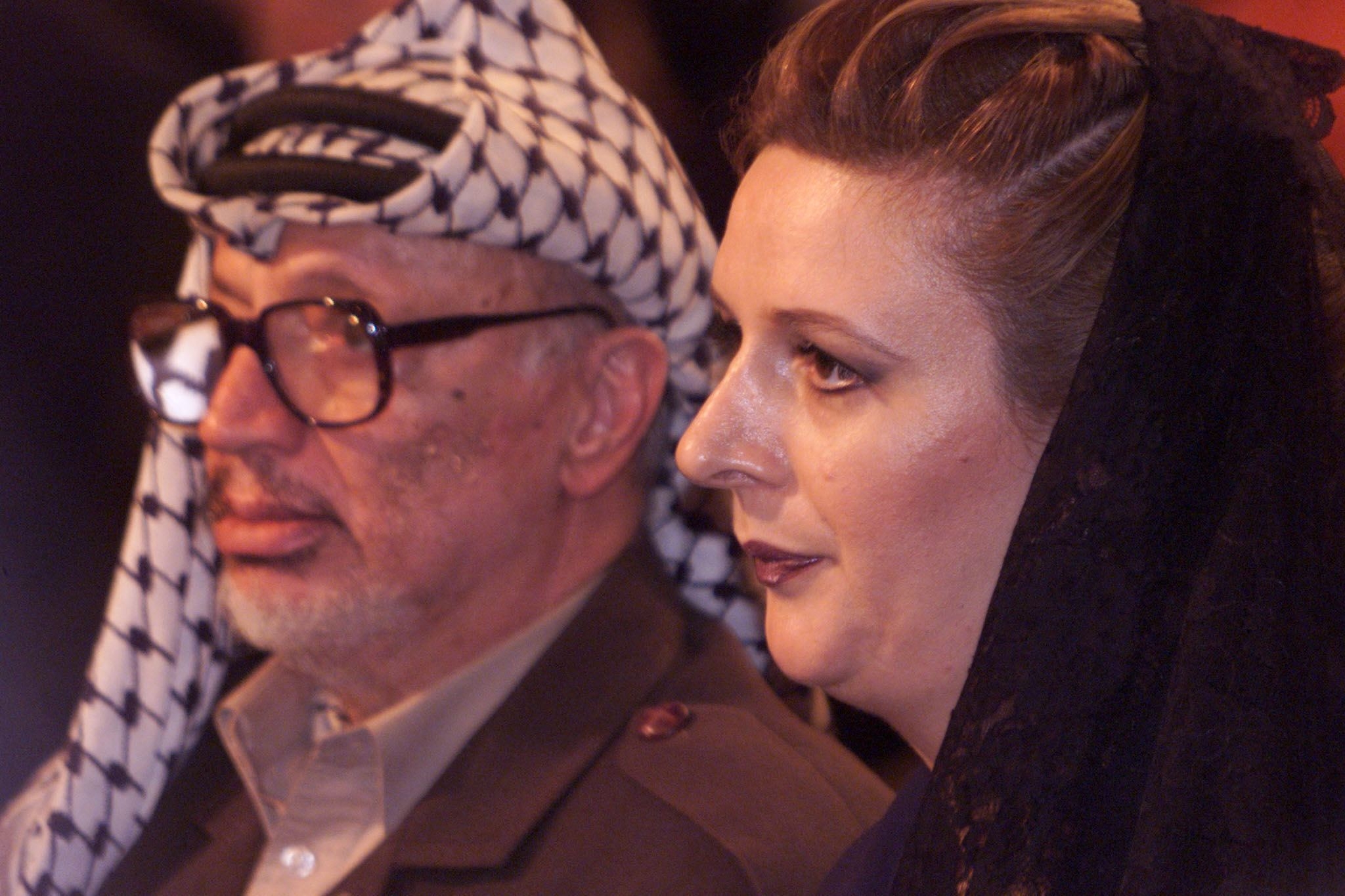European court rejects attempt to reopen investigation into Yasser Arafat's death

The European Court of Human Rights (ECHR) has dismissed a case brought by the widow and daughter of Yasser Arafat that sought to reopen an investigation into the iconic Palestinian leader's death.
Suha El Kodwa Arafat and Zahwa El Kodwa Arafat, both French citizens, filed their case with the Strasbourg-based European court after French courts dismissed their claims that Arafat had been the victim of premeditated murder.
Arafat's family had claimed they had been refused their right to a fair hearing, in particular a refusal of their request for an additional expert report on his death.
In a ruling issued on Thursday, the ECHR said there had been no infringement on the right to a fair hearing and the complaint filed by the family was "manifestly ill-founded".
Three judges said that after reviewing the case, "at all stages of the proceedings, the applicants, assisted by their lawyers, had been able to exercise their rights effectively".
New MEE newsletter: Jerusalem Dispatch
Sign up to get the latest insights and analysis on Israel-Palestine, alongside Turkey Unpacked and other MEE newsletters
"Judges did not appear to have reached arbitrary conclusions based on the facts before them and their interpretation of the evidence in the file or the applicable law had not been unreasonable," they added.
Arafat died in a hospital in France in November 2004 after developing stomach pains while at his headquarters in the West Bank city of Ramallah.
The official cause of death was a large haemorrhagic stroke, but no autopsy was carried out and senior Palestinian leaders withheld his medical records.
In 2011, Arafat's widow Suha handed over some of the Palestinian leader's personal effects to a reporter from Al Jazeera who passed them to the Institute of Applied Radiophysics in Lausanne for tests.
A 108-page report by the Swiss institute found unnaturally high levels of polonium in Arafat's ribs and pelvis, and in soil stained with his decaying organs.
But in December 2012, a French enquiry concluded that the Palestinian leader had not died of poisoning from polonium-210, as was suggested by the Swiss finding.
The French conclusion was given credence by the results of a separate Russian enquiry announced in the same month, which also denied foul play in Arafat's death.
However, doubts were cast on the objectivity of the Russian enquiry, which was alleged to be determined politically and not based on scientific evidence.
Palestinian officials have repeatedly accused Israel of masterminding what they say was an assassination of their president, a charge denied by Israel.
Polonium-210 became famous in 2006 when Alexander Litvinenko, a fugitive Russian intelligence officer turned opponent of President Vladimir Putin, was killed in London by a strong dose of the hard-to-get radioactive isotope.
Two Russian agents were the chief suspects for British police, but Moscow refused their extradition.
Middle East Eye delivers independent and unrivalled coverage and analysis of the Middle East, North Africa and beyond. To learn more about republishing this content and the associated fees, please fill out this form. More about MEE can be found here.





